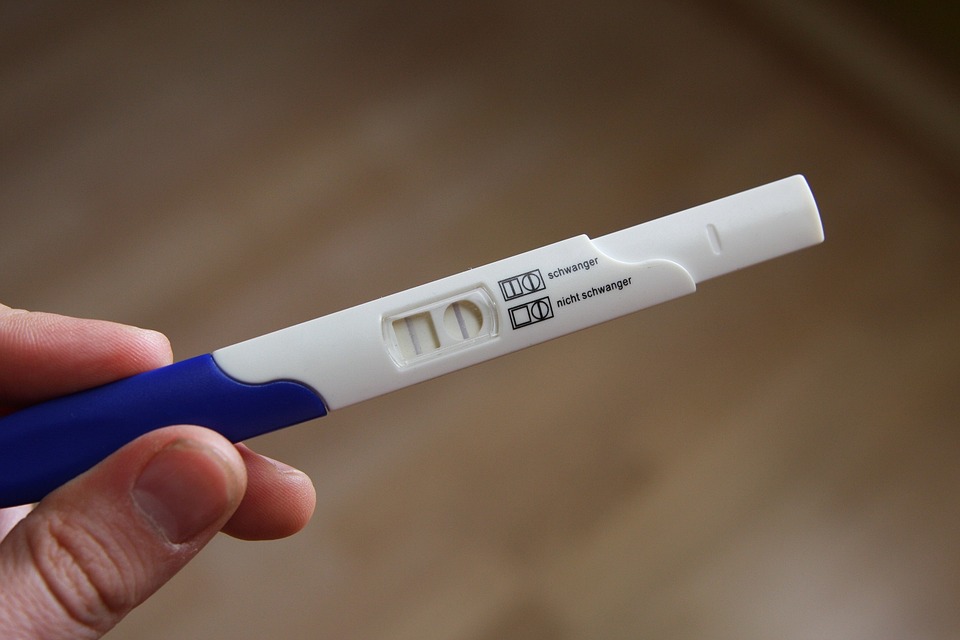Are you hoping to become pregnant, or considering having more children soon? Many couples struggle to get pregnant. The health and wellness industry makes an enormous profit by exploiting this fact.
The cost of drugs and interventions that improve the likelihood of a successful pregnancy can be tremendous due to the anxiety brought on by a diagnosis of infertility. However, you might not have to go that route.
If you are aiming to become pregnant or anticipating to have a baby when the time is right, there are techniques that you can utilize to naturally increase your fertility.
Fertility and Hormones
Many symptoms are often caused by an imbalance in the endocrine system. And this includes infertility.
The organs of the endocrine system include the ovaries and other glands that create hormones. In order to protect and improve your fertility, the key is to focus on hormone balance.
At the beginning, it is essential to comprehend that nutrients aid in the production of hormones. It is likely that you know about the hormone estrogen and the nutrients needed for its creation such as magnesium, Vitamin E, and zinc. The nutrients that your body needs can be found in ordinary foods such as butternut squash, pumpkin seeds, and leafy greens.
If the body is deprived of vital nutrients for a prolonged period, this can lead to endocrine problems and substandard fertility. It is possible to improve fertility by consuming meals that contain the necessary nutrients to create hormones. By understanding which foods provide these essentials, you can include them in your everyday diet.
Here Are 10 Tips to Naturally Balance Your Hormones and Boost Fertility:
Here are some of the top eight strategies to help regulate hormones and increase the chances of fertility through nutrition and other holistic practices.
1. Eat a Moderate Amount of Carbs
It has been said that following a diet that is low in carbohydrates can be beneficial in increasing fertility. This is due to the fact that foods that are rich in sugar such as desserts and refined carbs like bleached flour, bread, and pasta trigger inflammation and have a harmful effect on the body.
In other words, your body needs carbs in order to be able to reproduce. Studies have discovered that it is necessary to consume approximately 130g of carbohydrates each day for the release of luteinizing hormone (LH) to be initiated, and this hormone is necessary for ovulation to happen. Diets such as the keto diet or overly restrictive weight loss plans that do not provide enough carbohydrates might prevent you from releasing an egg.
We suggest that you put one cup of complex carbohydrates in each meal in order to guarantee the preservation of your hormone balance and fertility. Complex carbohydrates consist of fiber and essential vitamins and minerals, and won’t cause an abrupt increase in blood sugar. Select recently picked berries, yams, zucchini, unpolished rice, a rough-textured sourdough, or legumes.
The sole exemption to this suggestion is if you are diagnosed with insulin-resistant Polycystic Ovarian Syndrome. If this resonates with you, seek guidance from a nutritionist focused on hormone regulation and fertility.
2. Support Your Thyroid
Low levels of thyroid hormones may reduce progesterone levels, increase the risk of an early pregnancy loss, and have a negative effect on the quality of the eggs. In order to become pregnant, it is important to have acceptable amounts of the active thyroid hormone T3 in your body.
If a thyroid panel shows that your T3 levels are low, you should seek help from a specialist like a functional medical doctor or a naturopath to remediate the situation. You can perform a self-test in the comfort of your own home to check your thyroid’s health. Record your temperature over the course of your cycle and monitor for a good increase after you ovulate.
Consume meals that are beneficial for your thyroid by excluding gluten and incorporating fermented edibles such as sauerkraut (or taking a high-quality probiotic supplement). Grass-fed liver contains a wealth of essential nutrients such as zinc, selenium, and Vitamin B6.
Nevertheless, if you’re reluctant to take it in that way, you can get methylfolate from other food sources like oysters, Brazil nuts, and sunflower seeds, or from a good quality prenatal supplement.
3. Include a Variety of Healthy Fats
Your physique requires fat in order to create all of your hormones. It is suggested that you include a nutritious fat source in every meal. Have a range of nutritious fats stored in your cupboard and refrigerator as every sort has its own advantages.
My top choices are avocado, which is full of Vitamin E and folic acid, sunflower and black sesame seeds with a high B6 content, cod liver oil or another top-notch fish oil supplement, hemp seeds rich in magnesium, organic butter or ghee, and egg yolks from pastured chickens.
Incorporate nuts and seeds into your blended beverages, dress up your salads by creating your own condiment, or swallow a supplement every day.
4. Support Your Body Post-Ovulation
If you are possibly expecting, it is important to have the proper levels of progesterone to keep your pregnancy going. Certain substances, such as B6, can be beneficial for creating progesterone. This item can be obtained from sunflower seeds, fish like wild salmon and wild cod, and turkey.
Magnesium, which can be obtained from leafy vegetables, and beta carotene, which can be found in yams, are also essential for producing progesterone.
A great meal to have after releasing an egg would be a cup of roasted sweet potato, a significant portion of steamed kale, and a plate of baked wild salmon. Coat the dish with a pleasant mixture of lemon and tahini sauce to make it complete. Yum!
5. Take Fertility-Boosting Adaptogens
Adaptogenic herbs that have been used for thousands of years are thought to aid in fertility. One particularly remarkable instance is He Shou Wu , a herb that has been utilized for many years in Chinese Medicine. In recent times it has been identified as an inhibitor of monoamine oxidase.
If you have fertility issues that are related to stress, he shou wu can help to prevent dopamine from degrading. In this way, it renews your energy and libido. This plant is plentiful in iron and zinc, elements that help maintain your testosterone amounts (crucial for your sexual desire and masculine fertility).
Be sure to talk to your doctor or naturopath before using herbs. The specialists will furnish the necessary amount and make sure that the herbs are beneficial and not damaging when used in combination with other medications prescribed for you.
6. Practice Yoga Nidra
High amounts of stress directly impact your sex hormones. When feeling tension, the body will prioritize the secretion of cortisol. This hormone causes a stress reaction that gets your body ready to either fight or run away (instead of engaging in reproduction).
Yoga Nidra can be beneficial in releasing built-up stress, releasing muscular tension, and decreasing excessively high cortisol amounts. Look on YouTube for a Nidra recording you really like and take some time to listen to it a few times each week to assist in dealing with tension.
7. Reduce Endocrine Disruptors
Certain artificial substances, for instance BPA, dioxin, and phthalates create damaging consequences for our hormone glands. Endocrine disruptors directly impact your fertility. They have been shown to disrupt reproductive processes and can potentially lead to developmental complications in kids.
These compounds are commonly present in domestic cleaning supplies, cosmetics, construction materials, bug sprays, and plastic wrapping. To lower your exposure to endocrine disruptors, basic measures can be taken. Stay away from plastic water bottles, plastic covering, and canned goods (generally in light of the fact that most containers are lined with BPA).
Purchase organic meat and vegetables if you have the opportunity and evade culinary items that are sealed in plastic. Check out ewg.org for more info.
8. Eat a Healthy Diet
Foods that help natural infertility treatment include:
- Organic foods: Pesticides can affect estrogen and other hormones; therefore, it’s important to choose only organic products as much as possible. The organic farming process ensures that any pesticides used on the crops are made from natural ingredients (without arsenic and tobacco dust) and are free from conventional or synthetic pesticides.
- Wild-caught fish: Omega-3s can help reduce inflammation, which can promote fertilization and implantation. Research also suggests that a diet rich in omega-3 fatty acids can help regulate ovulation, improve egg quality and even delay aging of the ovaries. ( 3 ) Just avoid fish high in mercury .
- Vitamin E-rich foods : Vitamin E is critical for many hormones and proper functioning of the endocrine system.
- Foods rich in vitamin C: Vitamin C helps trigger ovulation in women and can increase sperm in men. Vitamin C foods also help your body absorb iron, an important nutrient for women who become pregnant. Grapefruits and other citrus fruits, kiwis, guava, red peppers, and kale are great sources.
- Foods rich in folate: Folate or folic acid is a B vitamin that helps the body build new cells and prevents birth defects. Experts recommend increasing folate intake before getting pregnant to ensure a healthy pregnancy. Most women are encouraged to take a prenatal vitamin with folic acid to ensure that they get the recommended 400 to 800 micrograms daily. Foods naturally rich in folate include green leafy vegetables, citrus fruits, beans and wheat germ.
- Broccoli, cabbage and Brussels sprouts: These cruciferous vegetables contain indole-3-carbinol, which helps the liver metabolize estrogen. It’s best to steam cruciferous vegetables, avoiding the goitrogens present in their raw state.
- Pumpkin Seeds: For men, these seeds provide zinc, an essential nutrient for reproduction.
Foods that can actually negatively impact fertility include:
- High-fat processed meats : These can increase inflammation levels and may contain additives.
- Grains: Grains may increase cortisol and estrogen , leading to infertility issues.
- Refined sugar: Is sugar bad for you ? Oh yes. Refined sugar reduces immune function and may cause nutrient depletion. High intake of refined sugar also contributes to obesity, which is a big risk factor for infertility. ( 4 )
- Alcohol: Alcohol increases inflammation and reduces immune function. For women, heavy drinking is associated with an increased risk of ovulation disorders and endometriosis . For men, it lowers testosterone levels, causes erectile dysfunction and decreases sperm production.
- Caffeine: Caffeine can cause hormonal imbalances, dehydration and lead to mineral deficiencies. High consumption has been shown to interfere with fertility. Lowering your caffeine or giving it up entirely is a smart idea when you’re trying to get pregnant, especially if you’re having trouble. ( 5 ) The American Pregnancy Association says that more than 200 to 300 milligrams of caffeine per day may reduce fertility by 27 percent, so you want to avoid caffeine overdose . ( 6 )
- Drugs: Drugs like marijuana can negatively affect fertility by making ovulation more difficult each month. ( 7 )
9. Decrease Stress
It may not be the first thing that comes to mind when trying to cure infertility, but reducing tension and worries can be an effective way to tackle this issue. Nowadays, we experience a great deal of tension and are not aware of the implications that it has on our physical well-being. I really want to highlight the value of reducing stress for one’s overall wellness and even more so if you are attempting to conceive.
Studies have shown that stress can be a major factor in a woman’s likelihood of having difficulty conceiving. A research project monitored the amount of an enzyme associated with anxiety in the saliva of ladies attempting to conceive during the course of one year. Alpha-amylase is an enzyme that aids the body in breaking down carbohydrates and is related to the fight-or-flight response.
Approximately 87% of the 400 couples that took part in the research were successful in achieving pregnancy in the female partner. When taking into consideration factors such as age, race, income, and how much alcohol, caffeine, and cigarettes were being used, the researchers observed that women who had the highest concentration of the enzyme amylase were 29 percent less likely to get pregnant than those with the least amount.
Now is an ideal occasion to appraise your main concerns, establish what brings you the most worry and abolish it from your life if you can. If you can’t get rid of the stress, you’ll have to figure out healthy ways to manage it and reduce it.
Once you become a parent, all priorities shift. If you have a high amount of cortisol in your body due to anxiety, it can have multiple negative health effects, like infertility, as well as other physical and mental difficulties. This is an appropriate moment to seriously contemplate stress and its consequences for your physical condition, and natural therapies for decreasing stress are exceptional cures for infertility issues of a natural origin.
10. Exercise to Balance Hormones
Some may not be aware, but they can tell the change in their hormones when they work out. Their disposition improves, they get a better night’s rest, and they could even be fuller of desire in the bedroom. All of these changes occur with changes in hormones. Exercising can lead to a boost in serotonin, which is commonly referred to as the “feel good hormone.”
We are made to eat healthily and have sufficient exercise daily, however most of us fall extremely short of doing this. If you would like to conceive, it is of utmost importance, though it is frequently ignored, to frequently engage in physical activity so that your hormones can achieve equilibrium. Hormones have an influence on virtually all stages of conception, from the laying of the egg to the state of the sperm and the capacity to get to and combine with the ovum.
Doing intervals and lifting weights are the most beneficial type of physical activity for maintaining hormonal equilibrium. Doing physical activity on a frequent basis also assists in keeping a healthy body size, which can increase your opportunities for becoming pregnant. I advise you to be careful when doing long-distance running or any kinds of intense physical activity, as research has proven that excessive exercising can negatively affect hormone levels and fertility. Researchers have discovered that intense or lack of physical activity can have a negative effect on a person’s fertility, however moderate exercise can be helpful.



